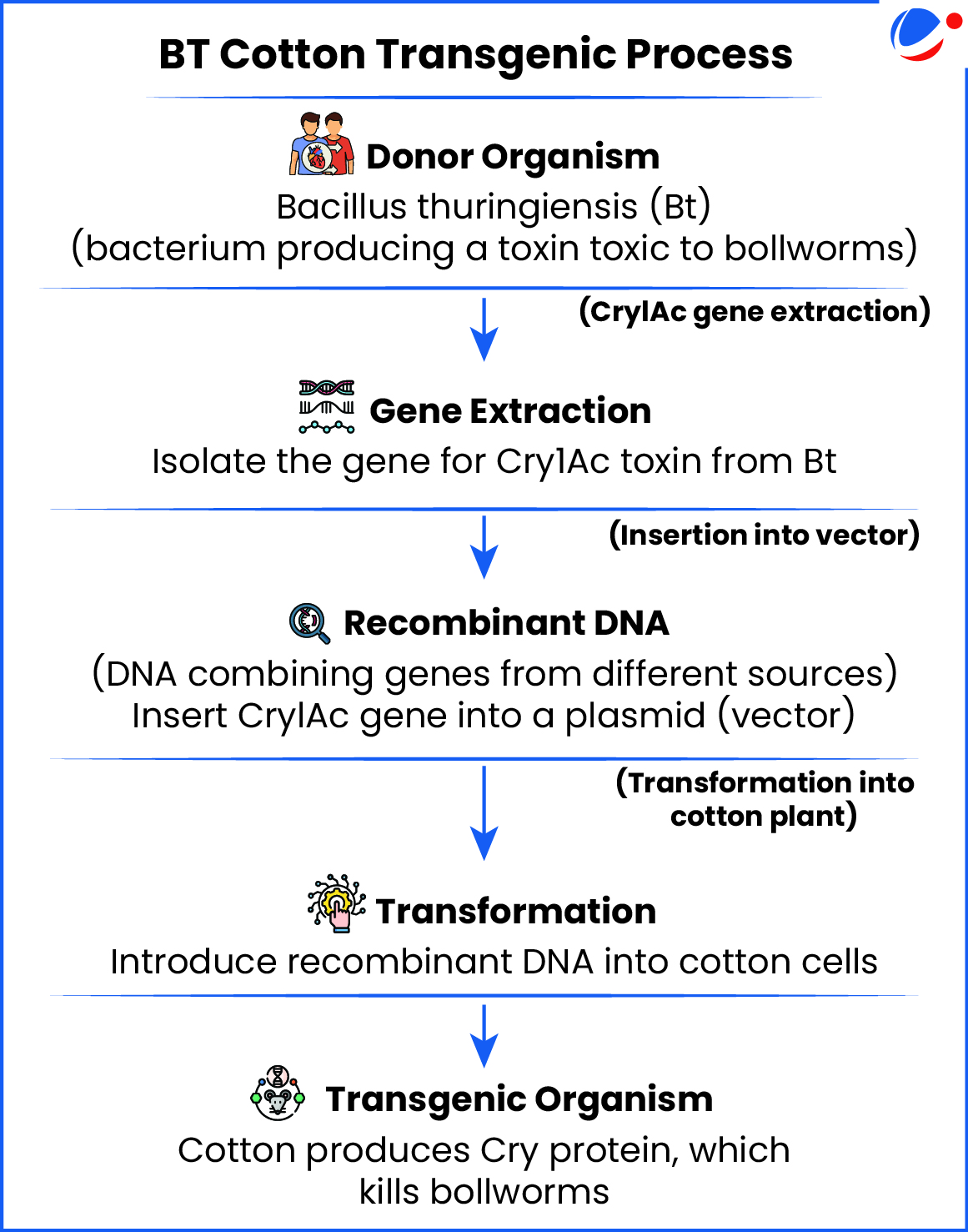
Transgenic refers to an organism or cell whose genome (entire set of DNA instructions found in a cell) has been altered by the introduction of one or more foreign DNA sequences from another species.
About Transgenic Organisms
- Concept: Transgenic organisms express new traits or proteins not native to their species, with 'trans' meaning from 'one to another' and 'genetic' referring to genes.
- Transgenic Mouse: key model for studying biological processes due to its physiological, anatomical, and genomic similarities with humans.
- Purpose & Applications
- Understanding Normal Physiological Processes: E.g., Transgenic mice created to study metabolism & blood cell production.
- Modeling Human Diseases: E.g., Transgenic pigs, used to model human diseases like Alzheimer's.
- Developing New Treatments: E.g., Transgenic zebrafish, accelerate drug testing & therapy development.
- Production of Therapeutic Proteins: E.g., Transgenic goats developed to produce human antithrombin (a blood-clotting protein).
- Disease Resistance Crops: E.g., Bt Cotton is genetically modified to be resistant to bollworms.
- Challenges
- Regulation in India: ‘Rules, 1989’ under the Environment (Protection) Act, 1986, Genetic Engineering Appraisal Committee (GEAC), etc.
- Ethical Concerns: Related to animal welfare, and unintended consequences due to genetic modification.
- Environmental Risks: Potential for Transgenic organisms to disrupt ecosystems.




